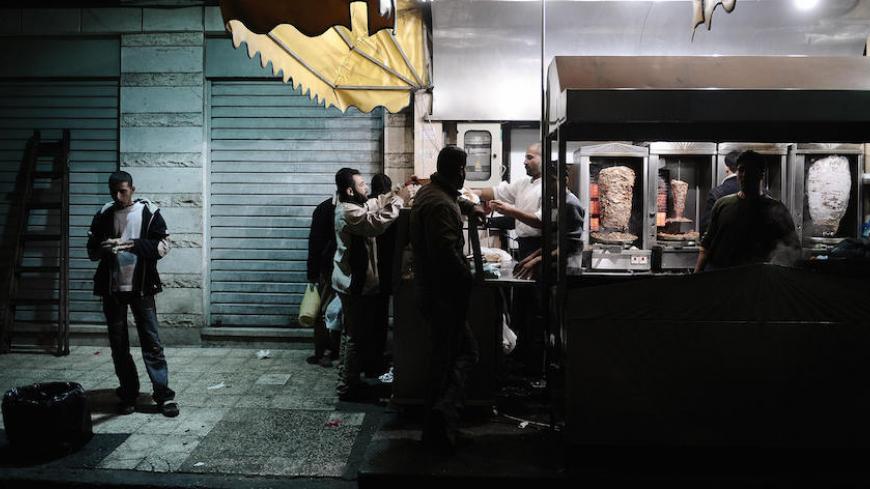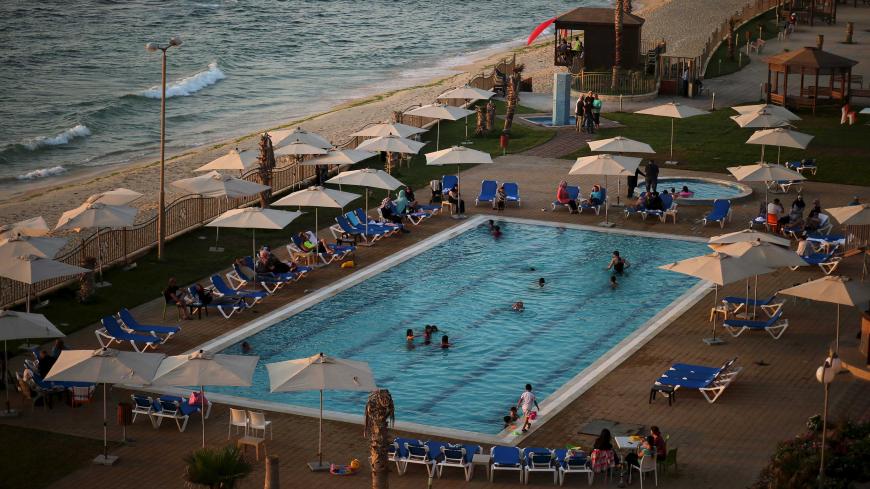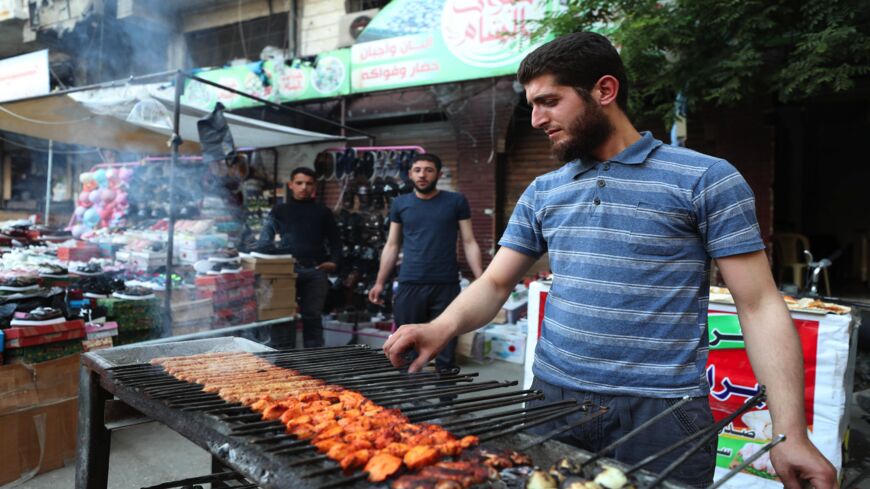Restaurants on the rise in Gaza
The number of restaurants are rapidly increasing in the Gaza Strip, as this industry is regarded as a safe investment in light of the siege and the ban on imports.

GAZA CITY, Gaza Strip — The increasing number of new restaurants is apparent in the streets of Gaza City. At a time when political and economic conditions have led to a scarcity of investment opportunities, the restaurant industry seems to have become a new opportunity for investors in the Gaza Strip.
Al-Monitor noticed, during a tour of various restaurants in Gaza City, how they have reached a professional level of customer service. Rizk al-Helou, the director of the Department of Tourism at the Palestinian Ministry of Tourism, told Al-Monitor in this regard, “When foreigners visit the Gaza Strip, they are surprised by the modern and sophisticated entertainment venues, restaurants and cafes, and by the service provided to customers. There are many success stories and it is considered a great breakthrough in this industry.”










